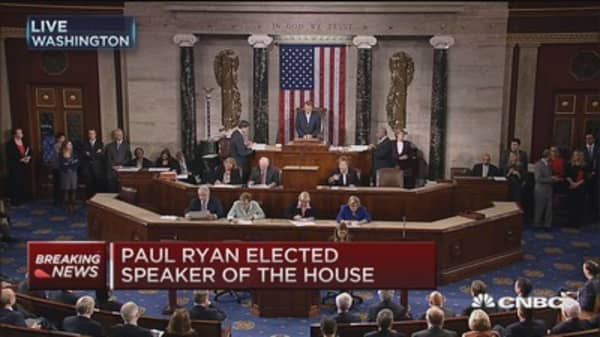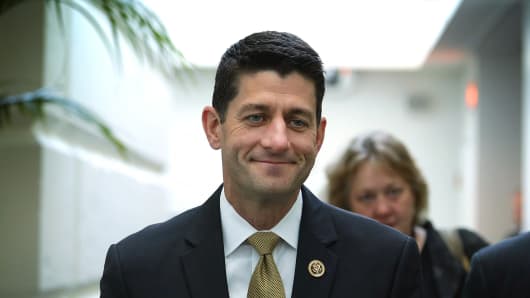The House speakership is traditionally a capstone to one's career, but newly inducted House Speaker Paul Ryan is the youngest person to serve in the role in nearly 150 years. With the Republican Party suffering from substantial internal strife, Ryan emerged as the only consensus candidate who could garner sufficient votes to wield the speaker's gavel at this time. However, much like Pope Benedict XVI in the long succession of the papacy, Ryan is more destined to serve as the transition between two eras rather than to create an extensive one of his own.
Reluctant to take on the speakership in the first place, Ryan will most likely focus on accomplishing discrete, key milestones rather than becoming an institution in his own right.
Most notably, Ryan has set his sights on leading efforts to achieve comprehensive tax reform, which is an elusive, once-in-a-generation goal. As chair of the House Ways and Means Committee, he had already begun laying the foundation for an ambitious rewrite of the tax code during the next presidential administration. While Ryan will no longer be able to get as deep into the weeds on tax reform, he will be in a far better position to shepherd the overall legislative process to fruition.










